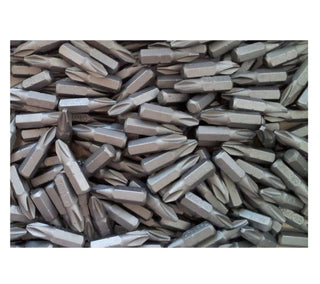The simple answer is yes, but also no. It really depends on many factors including the type of tool, the application, and even how often you plan to use them. We dive into this more complicated answer below and explain the benefits you can expect from brand name tools that aren't readily on the packaging, as well as some hidden drawbacks in many off-brand tools.
How precise do they need to be?
When I was a young buck and building my tool collection, I was concentrating more on quantity than quality. We had a tool tent that would come into town every couple months and I would go down and spend every penny I had on whatever I could afford. Some of those tools left dents in drywall from mini-rage outbursts, some of them filled up garbage cans, while others were just simply upgraded and given away. However, some of them I still own to this day. A lot of the difference came down to the types of tools I bought. The ones I still have today are non-precision tools like air hoses, extensions, and mechanical fingers. The worst investment that sticks in my mind the most, was a cheap set of line wrenches. I was so excited to finally have a set that when the opportunity came to use them, I proudly slapped the wrench on the fitting and gave it some arm-torque. Since this fitting was out of sight, the motion of the wrench made it feel like it broke loose, but when I reached in to finish it by hand I found a smooth and freshly rounded fitting. My smile quickly faded and the drywall suddenly found itself with a new wrench-shaped dent. Being young and idiotic, this experience soured me on line wrenches rather than cheap tools and It was years later when I was buying tools for school, the set happened to come with line wrenches. Well when the time came to use them, I immediately realized the difference in tool build quality, and also the error of my ways. The moral of this story is, If you're buying a tool for a specific measurement (i.e. a 10mm socket) the brand name tools are going to be much more accurate to the size they etch on the tool. However, that's not to say a sacrificial 12-point socket to pound onto a rounded nut won't come in handy, but be very cautious when striking cheap tools. This brings me to the next point:
Ok, maybe they're not cut exact, but they're the same other than that right?
No! While they may look just as shiny, the reason a lot of these cheap tools can be sold for astronomically low prices and not bankrupt their sellers is they're generally made with different materials that use a lot of fillers. The metals are usually different alloys, not heat-treated tool steel, and can have wildly unexpected results when force is applied, especially when struck with a hammer. I've had screwdriver tips break off or snap in half, the striking end of a punch mushroom out, and luckily I wear glasses anyway cause I've also had cheap sockets shatter into pieces! The same can be said for plastics and composites. I've had plastic handles to tools crumble and fall apart in my hand, and rubberized coatings chip and flake off at the least opportune time. The reason you pay a premium for the brand name tools, is because of the high quality materials they are made out of that will last a lifetime, or two, or three. If you break a cheap tool, don't replace it with another cheap tool. Spend the money, cause you're going to use it again. In the word of a former co worker, "If it can't take it, it's got to go."
Are you a Professional or Hobbyist?
This one falls more on the simple side again, as it's pretty much a no-brainer. If you work in the trade and plan to use your tools every day and need them to be able to stand up to constant abuse, definitely buy brand name. This is especially important is you're working on a vehicle other than your own, as the quality of your final product is what makes return customers. Many of the tool trucks that make the rounds to local shops allow you to open credit accounts but not many offer discounts other than the occasional sale. Students going into the trade usually receive a discount from many of the larger brands, so it's definitely a good idea to get whatever you can while you're still in school and the discount applies.
Whatever your budget, always buy the best tools you can afford at the time, and upgrade when you can. All in all, it depends on you as a mechanic and what your goals are. But regardless of your goals, tools are an investment, not a triviality. The better your tools, the better the quality and efficiency of your work can be. The more tools you have, particularly specialty tools, the more types of jobs you can accept.

